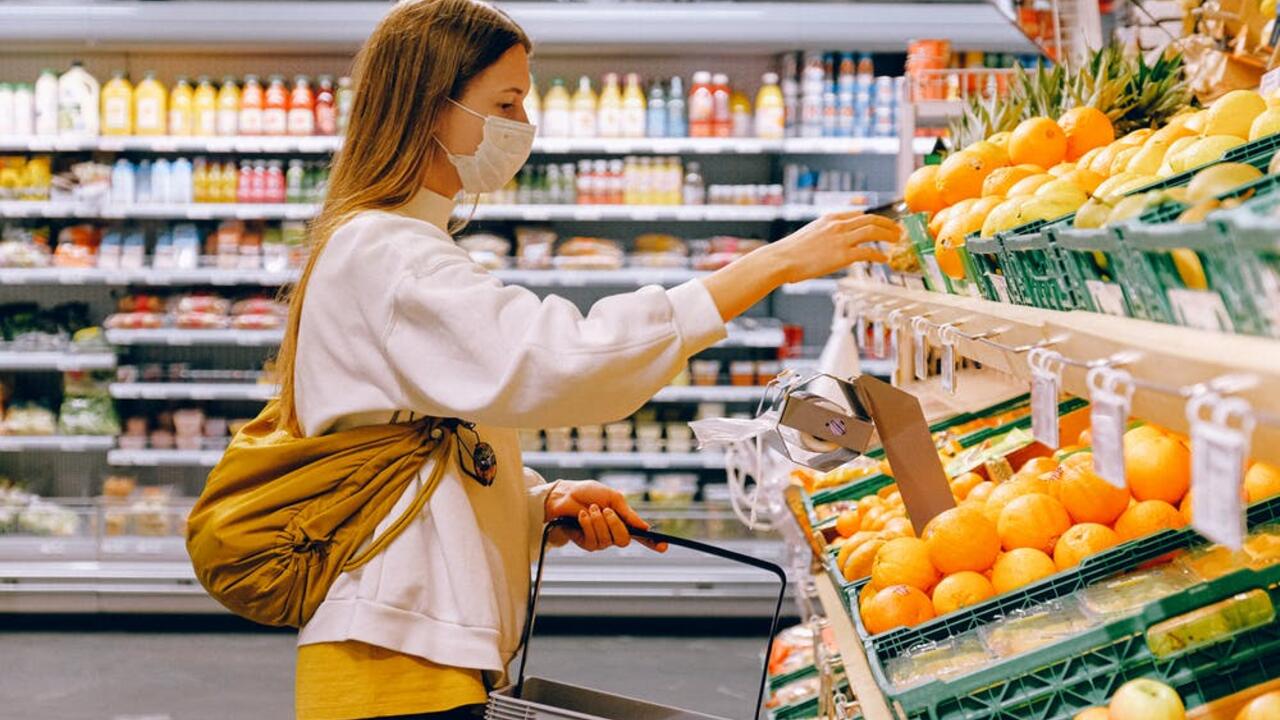
Game apps help people make healthy choices at the grocery store
Apps that promote nutritious eating and grocery shopping via games can curb impulse purchases and contribute to a healthier lifestyle, a new study finds.

Apps that promote nutritious eating and grocery shopping via games can curb impulse purchases and contribute to a healthier lifestyle, a new study finds.
By Media RelationsNutrition apps that focus on calorie counts for weight loss have limited success and can lead to negative body image, but apps that take the form of a game can be much more effective in changing people’s purchasing habits for the better.
University of Waterloo researchers at the Games Institute developed their own game app called Pirate Bri’s Grocery Adventure (PBGA) to test if research participants’ healthy behaviour and motivation improved while using it over a three-week period.
“PBGA uses game elements and allows people to play while they’re grocery shopping: people create a profile indicating their nutrition needs, then they shop in real life while tracking challenge progress in the app by scanning what they intend to buy,” said Professor Jim Wallace of the University of Waterloo’s Games Institute.
“Focusing specifically on food literacy, the app was designed with the goal of empowering people to make healthy, informed food choices,” said Wallace.
Pirate Bri, the app’s character, guides people through purchases by showing them simple stoplight-coloured indicators about the item’s nutritional value and recommending alternatives when necessary.
“This feature offers the player the opportunity to learn about the products and think about their decisions, developing their own understanding of what is healthy,” said Marcela Bomfim, PhD student in Public Health and Health Systems and lead author of the study.
“We intentionally do not include the recommended number of calories, because they can be a poor predictor of healthy foods. Instead, we encourage the consumption of more fibre, fruits, and vegetables,” said Bomfim.
Grocery stores are designed to target consumers’ tendencies to make unhealthy choices by shelving processed foods at eye-level, like colourful cereal boxes, and locating inexpensive candy and chocolate in the areas that customers are most likely to make impulse purchases, like checkouts. PBGA uses stoplight colours to make it simple for people to understand when they have selected nutritious items.
From the 3-week exploratory field study, in which a total of 24 participants were assigned to use either PBGA or a non-game nutrition app, participants showed increased healthy purchasing behaviour and improved understanding of nutrition labels.
“Overall, these results demonstrate the potential for apps to motivate in-depth healthy behaviour promotion based on food literacy, beyond the calorie approach demonstrated in previous research,” said Wallace.
The study, Food Literacy while Shopping: Making Informed Food Decisions with a Situated Gameful App, is published in the proceedings of the ACM Conference on Human Factors in Computing Systems and received an Honourable Mention Award.

Read more
Prof. Jimmy Lin spearheads creation of new search engine

Read more
A new artificial intelligence tool is being used to help physicians treat COVID-19 patients.

Read more
Production focus pivots to 3D-printed parts for face shields worn by health-care professionals
The University of Waterloo acknowledges that much of our work takes place on the traditional territory of the Neutral, Anishinaabeg, and Haudenosaunee peoples. Our main campus is situated on the Haldimand Tract, the land granted to the Six Nations that includes six miles on each side of the Grand River. Our active work toward reconciliation takes place across our campuses through research, learning, teaching, and community building, and is co-ordinated within the Office of Indigenous Relations.